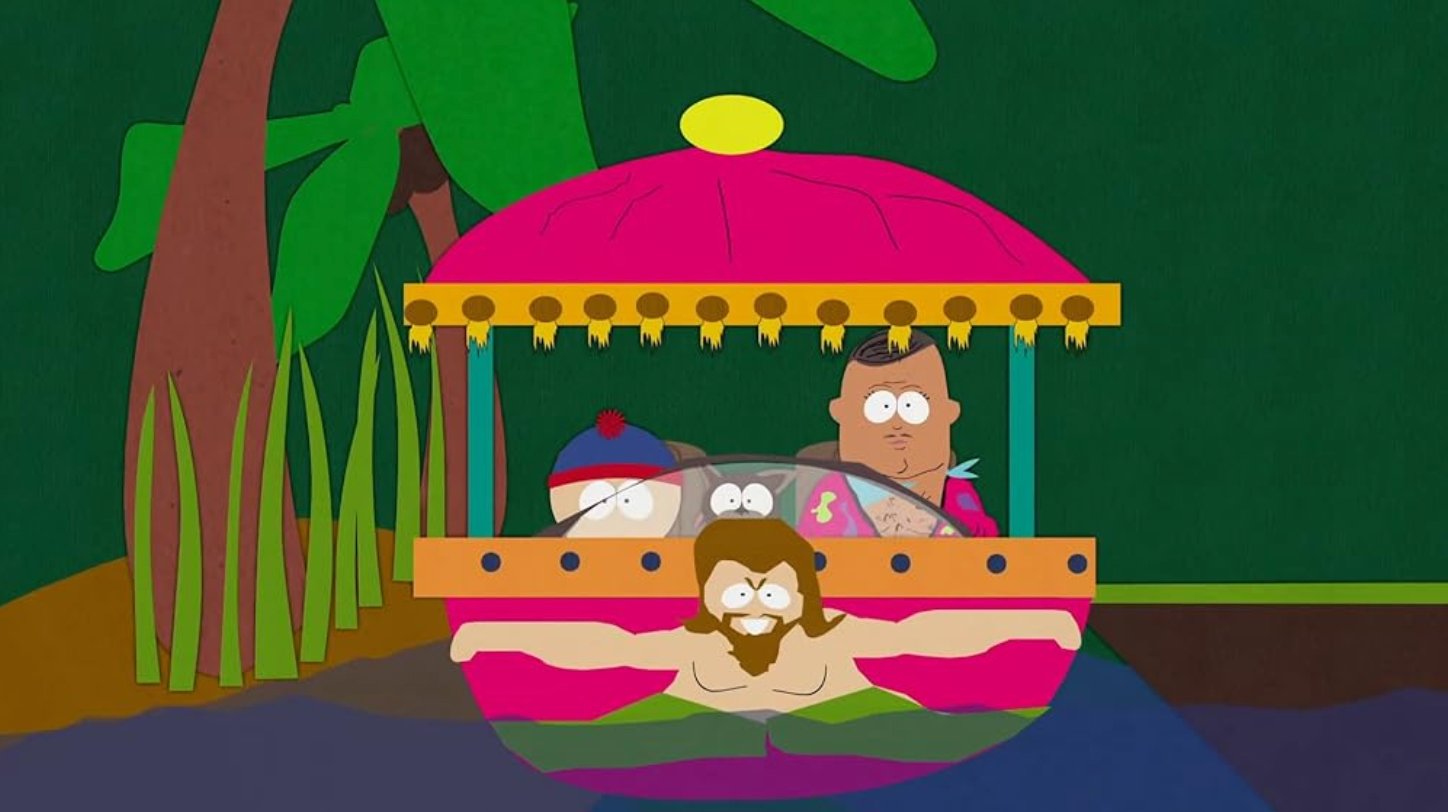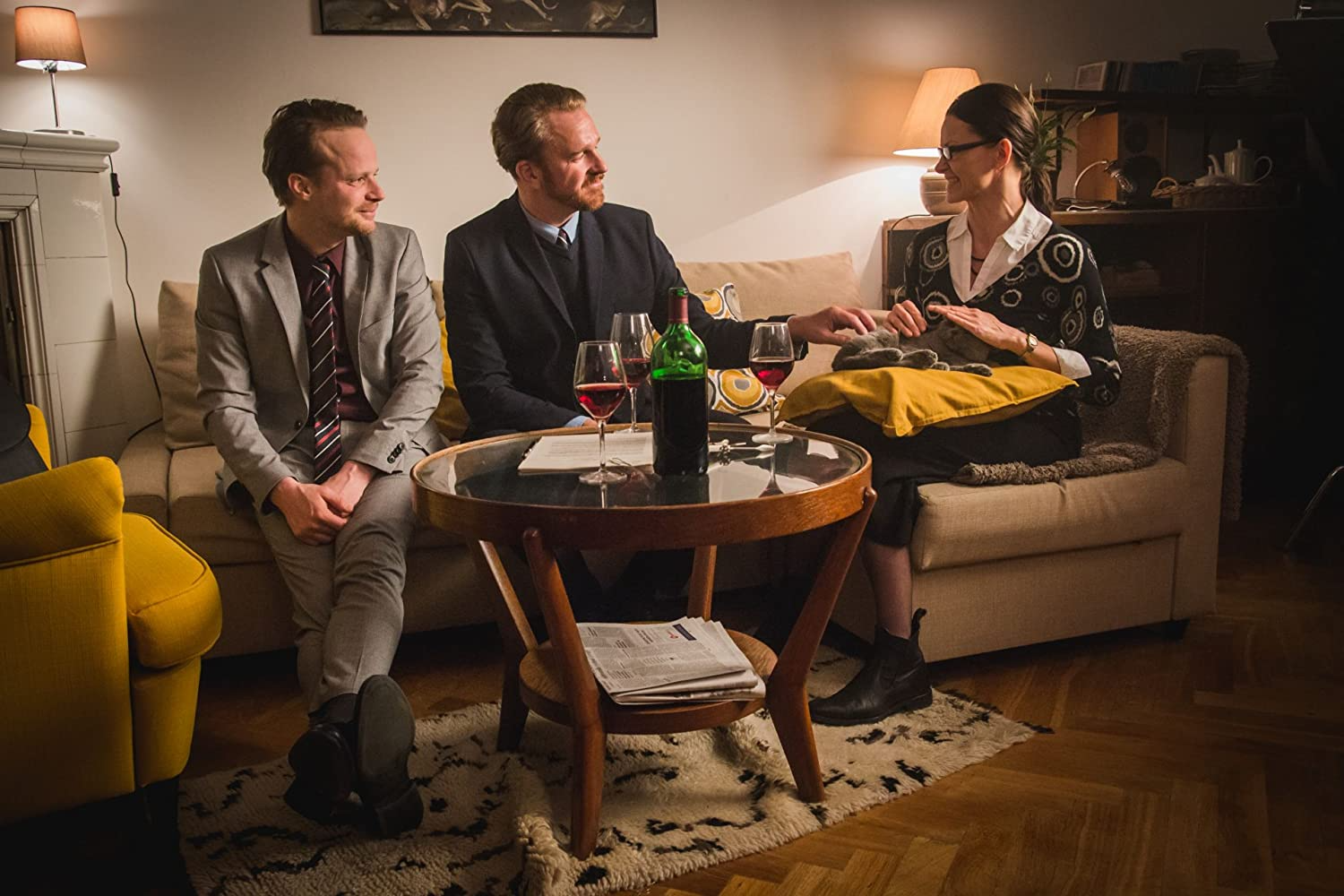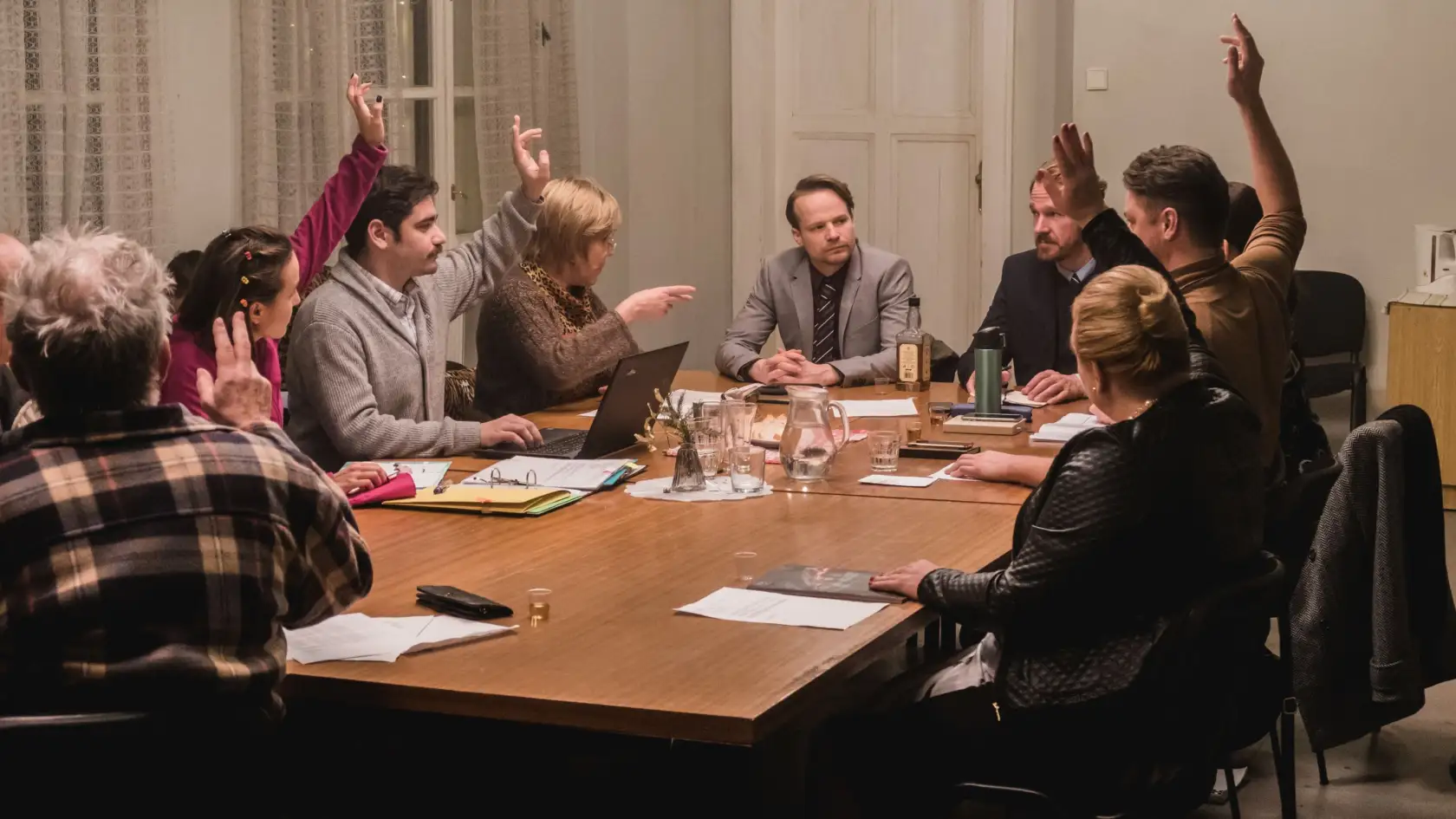How well do you understand the system being just a cog in the wheel? How easily can you recognise corruption? An oligarchy? A dictatorship? What if there was a way to show you the bigger picture without over complicating the story?
A Czech Satire
Vlastníci (2019) by Czech director Jiří Havelka, is a political satire that takes the larger picture and brings it to a smaller scale to better explain the current issues in government to the common man. It is set around a seemingly straightforward home owners association meeting to make important decisions related to the safety and infrastructure of the residents' building. If only it could be so simple.
The board of characters parallels the larger and far more complex government, each individual representing a group one is likely to find in the political sphere. From the Zaharadkas representing the young generation trying to argue for long term stability, to Kubat representing those hell bent to stick to tradition while hiding an ace up their own sleeves. To the ill informed, the opportunistic, the minorities and those still finding their footing in this unknown landscape, they are all spoken for in this film. And through their discussions and arguments, one can see how this consistent clash only causes more rifts between people who others are dependent on for a safer and more stable world. For a setting that is literally life or death, the lack of compassion and compromise is as harrowing as the literal conversations are hilarious.
Reaching the Common Man
The setting of an HOA is relatable to people beyond its original audience of the Czech Republic, with the conversation being centered around their politics ever since the Communist regime ended. It discusses specifics, but the way issues are handled has unfortunately become a universal scene.
"it is a comedy to those who have not experienced it, but a drama to those who have".
Multiple comments under the official trailer on YouTube also say that this is the reality for many of them and sometimes their real life is even more absurd than the film. Some even comment "That's real life" and "That's exactly what happens in those meetings" (translated from original Czech). You can find the Trailer on YouTube at Totalfilm.cz.
Such a connection to the general public while speaking about sensitive topics is not an easy task, especially if it actively criticises the current oligarchal and highly bureaucratic governance system in place. It makes the scene feel more ridiculous than it does in typical reality, exaggerating reactions and words and stretching nonsensical discussion points to make the message more palatable. It gets you to connect with the Zaharadkas especially, the ones attempting to drive this already sinking ship away from the iceberg.
Satirising the world
Satire as a genre uses humour and exaggeration to critique serious topics, especially those related to governments, institutions and society as a whole. It is a practice that has its origins back to Ancient Greece. It pushes the audience to not only enjoy the joke but reflect on what the punchline means. In a meeting where people keep talking about nonsense over the actual issue at hand shows the lack of interest in actually making a change or putting in the effort to work as a team for an overall benefit.
Political and social satire have been very common and one of the best ways to depict the reality of the world. South Park is a very popular show that falls into this category, satirising American people, habits, ideologies and mindsets. It sets its innocent child characters in a world where they are victims of ideologies and bigotry taught to them by adults who run the town through their greed. This parallels Vlastníci which uses the simplicity of a neighbourhood meeting to showcase the absurdity and hypocrisy of the national government.

A South Park episode released in 1997, showed one of the main boys finding out about homosexuality due to his dog being gay, and being taught only the negative stereotypes when asking adults about it. From his initial confusion, to the harmful thoughts put into his head. He came to realise that his hatred came from a lack of understanding and not a genuine dislike of the concept or hatred for this dog. The use of typical stereotypes to showcase the gay characters however, did not have a negative effect as much as it felt different and louder compared to the rest of the town. Despite it being released at a time where homosexuality was not depicted in the most positive light in mainstream media, the episode itself received positive reception from audiences. This genre is capable of altering perceptions of situations found in society despite what the people are fed.
Homeowners as Government Officials
Hidden motives and underhanded deals between owners disrupts the meeting over and over again, as in real life government. The best way these bribes are shown in the film is when the oligarchs of the group, the Čermáks share a drink with Roubicková, the personification of bureaucracy. They share a bottle of wine gifted to Roubicková as an agreement that she not cause problems during the meeting, a promise she breaks almost immediately.
In real life, the plan to build an important dam in the Brdy region in the Czech Republic was stalled for 7 years despite acquiring more than enough funds for the project. Due to the need for multiple necessary documents to be acquired. The project was instead completed in February 2025. By 8 beavers within 2 days, saving the Czech government $1 million. The story can be Found on National Geographic.
Considering the film came out in 2019, it may be safe to say that the need for paperwork and bureaucracy may still be a huge issue in the Czech Republic and potentially across the world. This joining of bureaucracy and oligarchy in the film however, is very in your face. They do not interact well at the meeting in front of the other residents, and neither does Roubícková seem to trust the Čermáks at all. But behind closed doors, they share a drink like old friends. It means that the oligarchs control over the system is very much aided by the very system that should prevent it. It did not prevent the other residents from trusting the Čermáks to look after all of the building plans, including the funds and signatures of the other residents after the meeting completely fell apart. All but Roubícková who appears to know their real colours.

A Masterpiece in Satire
The brilliance of Vlastníci is how these characters, representing oligarchs, entrenched bureaucracy, and idealistic youth, allow the general public to quickly map complex political classes onto recognisable neighbors. It drives people from regular cinema and comedy to genuine civic awareness in a simpler, digestible manner.
Films like this exist not only to critique and talk about necessary societal issues, but also as a release for the general public about their own frustrations of the going ons in the world. It is why we value humour so much. This satirical masterpiece shows us that understanding politics doesn't require a textbook; it simply requires a willingness to engage, a critical eye, and an appreciation for the sharp, undeniable truth found in a good, unsettling laugh.
The final question the film leaves us with is not about the characters, but ourselves: now that we, the collective owners; see the absurdity of our world, what will we do about it?
 Saara Sai
Saara Sai